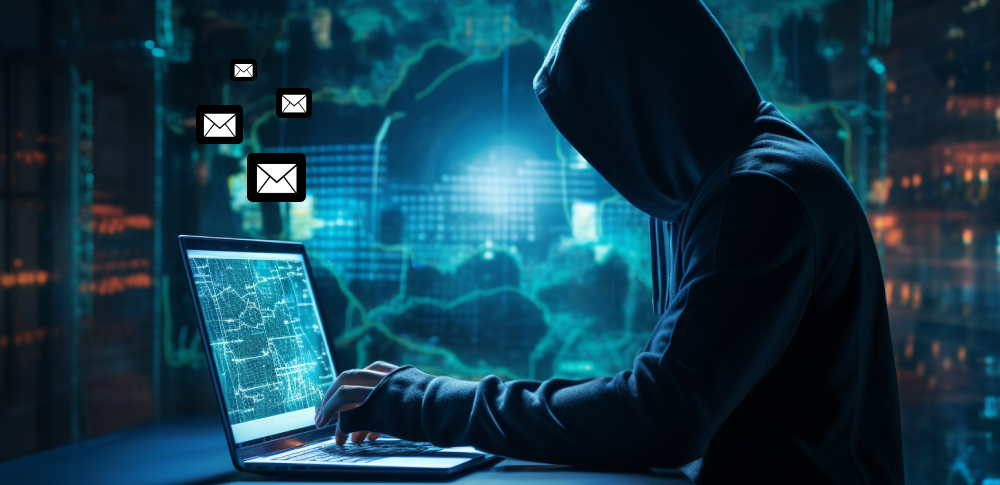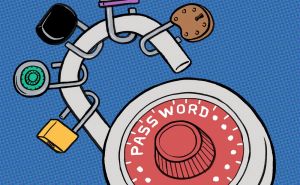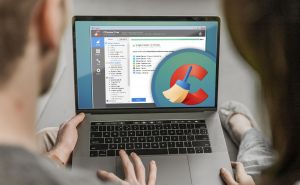 How to Protect your Email Account from Being Hacked
How to Protect your Email Account from Being Hacked
Nowadays, most people and organizations transitioned from sending letters to sending email messages and why wouldn't they? Emailing is a modern, easy and extremely fast method of sending and receiving messages and files in a matter of seconds, all across the world. Emails are not only used for sharing personal messages between users, but also for receiving important information such as details about a bank account, confidential files and other data that is not supposet to get in the possession of any third party. This is the main reason why hackers often target email accounts.
If you are concerned about the security and privacy of your email accounts, then you might want to protect them from being hacked. Here are several tips that will help you increase the security of your email accounts and decrease the chance of someone else accessing your information.
Set a strong password
The first step for increasing the security of your email accounts is using a strong password. Most people that have their accounts hacked use very simple passwords that can easily be discovered with just a little research on the users' hobbies and social life (Facebook made that very easy, didn't it?). Therefore, it is a bad idea to use your pet's name as a password and even a combination containing your name and birthday (like Jane94 or Mark1988) is very easy to hack. And you might as well stay away from the passwords found in this list.
It is recommended that you use a password that contains a combination of numbers, uppercase and lowercase letters and even symbols (and make it at least 8 characters long), making it impossible to guess. For example, it is easier to guess a password like Alex95 than XAel095+ (I know, it's a short password, but this is just am example). There are even websites, such as this one that will determine the security level of your password and tell if it is easy to crack.
Use the extra security measures offered by email providers.
Almost every email provider puts at your disposal several security measures that will help you protect your account from unwanted access such as notifying you if someone wants to access your email address from a different location. Some of the most popular email providers, such as Google, Yahoo! or Hotmail (Outlook) even offer you to log into your email account by using a code that is sent to your via a text or voice message (commonly referred to as 2-step verification).
The security questions that every email service provider ask you to answer when creating a new account are also important. They can help you quickly change your account's password in case it gets hacked and prevent any further damage. However, choosing easy-to-guess security questions, like "What city you were born in" or "What is your pet's name", is not as viable as you might think, as the answers can easily be guessed with a little research (again, social networks make this information easily accessible). Instead, you can provide fake answers and try to throw the hacker off his game.
Use a complicated email address
Unless you post your email address on all types of websites and forums, having a complicated email address will greatly increase the security of your email account. Most users have email addresses that can easily be guessed simply by knowing their names. Email usernames such as JohnSmith (@email.com) or Jane_Doe are much easier to guess from a person's name rather than a username containing numbers such as John499303.
Don't EVER share your account information
Never, under any circumstances, share your email account information with unknown users. Usually, hackers pose as an email company's employee and ask for your account credentials for various reasons. Don't fall for that trap. You should know that every email service provider states that none of their employees will ever ask you for your username or password, no matter what happens.
Use a password manager
Password managers are applications that will help you create highly secured passwords and safely store them in an encrypted database. Another great plus of using these programs is the fact that you don't even need to remember all your passwords. Besides storing your usernames and passwords, these tools will also automatically log you in each time you want to access your email account.
There are several password managers that are available for download, such as KeePass Password Safe or LastPass or paid applications like RoboForm or Password Manager Pro.
Protect your computer
You might also want to make sure that your system is not infected by any spyware or keyloggers. These malware programs will record your personal information, including typed and saved usernames and passwords and send them to another user. Usually, a regularly updated antivirus will do the job, but, if you are really concerned about the security of your data, then you might also want to install an anti-spyware tool and a firewall, as they can all work together, without affecting your system. Keep in mind that installing multiple antivirus programs can affect the stability of your system and cause crashes.
There are several free and efficient antivirus and anti-spyware programs available on the Internet, such as Avira, Avast, AVG, SuperAntiSpyware or SpyBot. These applications also offer you a paid version that will help you protect your system in a more efficient manner.
Also, if you are using a wireless network to connect to the Internet, you might want to set a WPA security key to prevent unwanted access to your network. If you don't know how to do that, then you need to access the "Wireless Security Settings" window by going to Connections (under Internet Connections) -> Your Wireless Network -> Wireless Map -> Your Router -> Properties -> Device Webpage.
Don't log in to your email account from unsafe locations
It might be a good idea that you restrain from accessing your email account from an untrusted location (such as Internet cafes or libraries), because you never know if the PC you use is free from spyware, keyloggers or other malware applications. The same thing applies to computers owned by other family members and friends, because, even though you trust them as people, they might not know that their systems are infected.
Don't use the same password for multiple accounts
This goes without saying that you shouldn't have one and the same password for your email, Facebook and iCloud accounts. Yes, it is much easier to remember one password instead of multiple keys, but, in case one of your accounts is hacked, all others are almost sure to be in danger. If you are afraid to forget the passwords, then feel free to use a password manager (presented above).
Conclusion
These tips should greatly help you improve the security of your email accounts and prevent hackers from accessing them. You should also keep in mind that, even though these tips will protect your email accounts to some degree, there is nothing that can guarantee a 100% safety of your personal data. Therefore, you might want to be a bit careful about what you share on the Internet, no matter how safe and trusted it might seem.
Of course, there are several other ways in which you can prevent your email accounts from being hacked, but I think that not clicking on every advertisement you find on the Internet, refraining from accessing "shady" websites or not opening "spam" emails or emails from unknown sources are actions that every computer user should know by now.






Why make it just 8 long at the moment I am using a 20+ units long password there are well over 9 billion combinations to it if you believe you account is attempted to being hacked ad a special or a letter or a number to you account password do this everytime they try it and there you go but remember the password with added numbers or letter on a device the doesn't have internet connection I use an old nokia
I would recommend avoiding password managers if the master password is hacked all of them are available. Instead physically write down your passwords with pen and paper and store them away from the computer.
Thanks for the correct ideas.
Awesome tutorials indeed.
A very useful tutorial indeed!
Thanks for details.